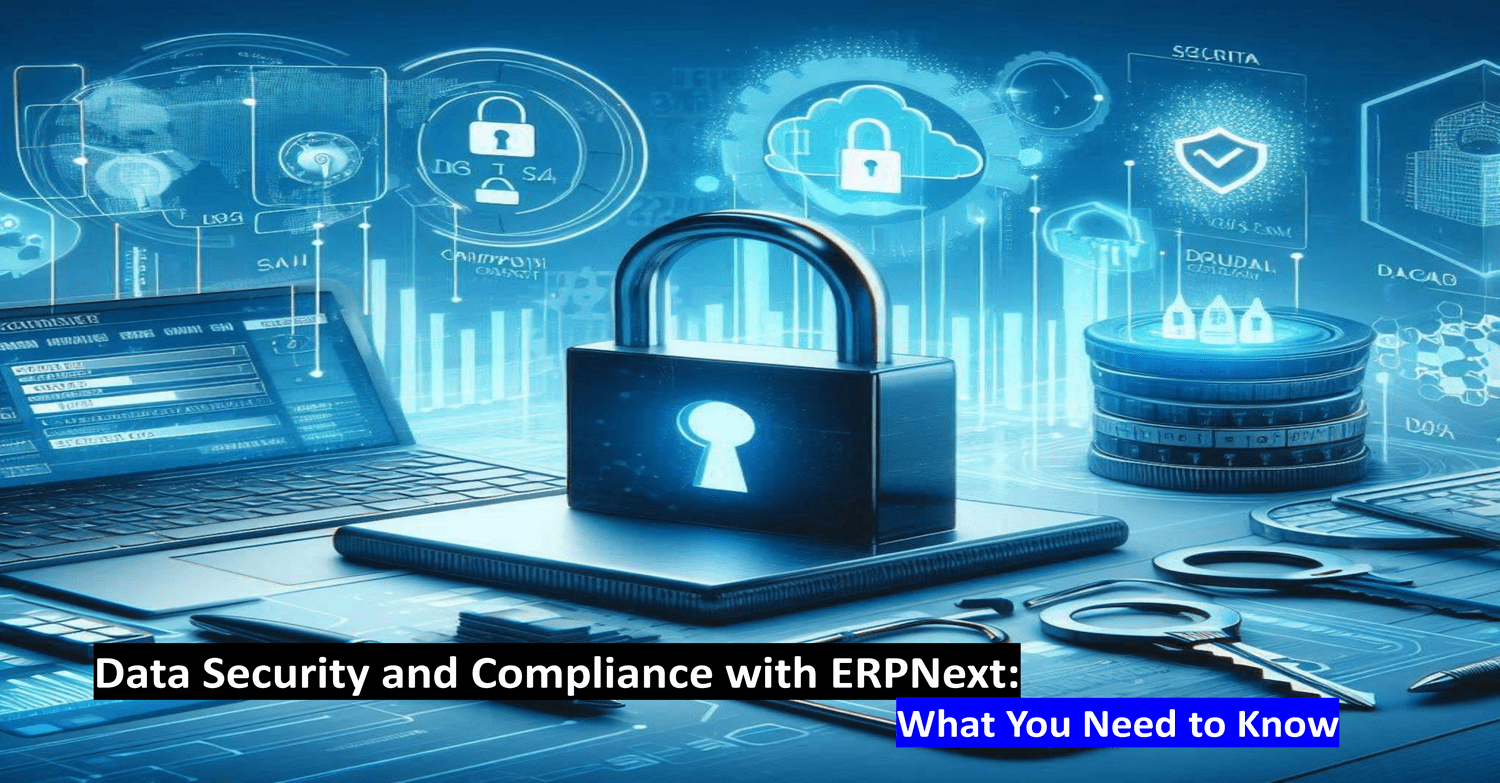
In a world where data is valuable, information security is crucial for businesses. ERP solutions like ERPNext are essential for managing this data. This article examines how ERPNext ensures data security and regulatory compliance to protect sensitive information.
What is ERPNext?
ERPNext is an open-source enterprise resource planning (ERP) software that covers a wide range of features, including accounting, human resources, inventory management, sales, and more. Its flexibility and scalability make it a popular choice for small and medium-sized businesses in Montreal.
Data Security in ERPNext
1. Data Encryption
- Encryption at Rest and in Transit: ERPNext uses robust encryption techniques to protect data at rest (when stored) and in transit (when transmitted over the network). This includes the use of SSL/TLS to secure communications and encryption mechanisms to protect databases.
2. Access Controls
- Roles and Permissions: ERPNext allows granular management of roles and permissions. Administrators can define who has access to which data and what actions they can perform, thereby minimizing the risk of unauthorized access.
- Authentication: Two-factor authentication (2FA) is available to add an extra layer of security, ensuring that only authorized users can access the systems.
3. Audit and Traceability
- Activity Logging: ERPNext keeps track of all important activities through audit logs. This helps detect and analyze any suspicious activity, contributing to proactive security measures.
Regulatory Compliance
1. Personal Information Protection and Electronic Documents Act (PIPEDA)
- Individual Rights: ERPNext facilitates compliance with PIPEDA by offering features to manage individual requests regarding their personal data, such as access, rectification, and deletion requests.
- Breach Notification: In the event of a data breach, ERPNext has protocols to quickly notify authorities and affected individuals, as required by PIPEDA.
2. General Data Protection Regulation (GDPR)
- Impact for International Businesses: For Montreal businesses with clients or operations in the European Union, ERPNext can help ensure compliance with GDPR, ensuring adequate protection of personal data.
3. Canadian National Standard (CAN/CSA-Q830-96)
- Information Security Management: ERPNext can be aligned with Canadian standards for information security management, thus ensuring a structured framework for the ongoing management of information security.
Best Practices for Securing Your Data with ERPNext
- Regular Updates: Ensure your ERPNext instance is regularly updated to benefit from the latest security patches.
- User Training: Train your employees on good security practices, such as recognizing phishing attempts and the importance of 2FA.
- Regular Backups: Perform regular backups of your data and test their restoration to ensure reliability in case of a disaster.
Data security and regulatory compliance are major concerns for all businesses, including those in Montreal. ERPNext, with its robust security and compliance features, offers a reliable solution to manage these challenges. By following best practices and leveraging the features offered by ERPNext, you can ensure the protection of your sensitive information and comply with current regulations in Canada.
